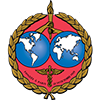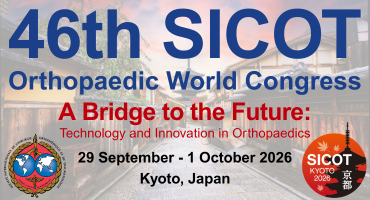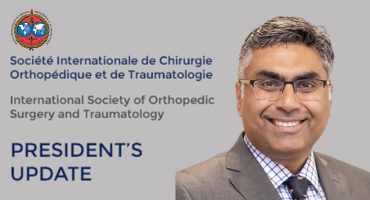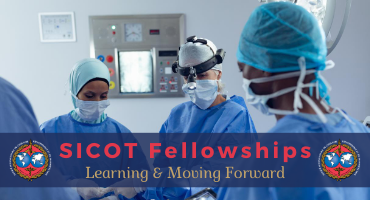
Training Around the World
Orthopaedic Training in Greece
  Vasileios Soranoglou, Lazaros Poultsides & Alexander McLawhorn Vasileios Soranoglou, Lazaros Poultsides & Alexander McLawhorn New York, United States  |
"It is impossible for someone to know medicine, unless he knows exactly what human is". This is a quote from Hippocrates, the father of medicine, and delineates the true deep meaning and mission of medical science throughout the centuries. In ancient Greece, Hippocrates first described treatments for dislocations and infections complicating fractures. The Hippocratic School and, later on, Galen formulated the theories which dominated medicine up to the beginning of the 18th century. The Greeks were the founders of rational medicine in the golden age of Greek civilization in the 5th century B.C. [1]. Thus, it is not surprising that nearly three-fourths of medical terminology is of Greek origin. For example, "orthopaedics" is a compound word deriving from the Greek words "orthos" (meaning correct or straight) and "paidion" (meaning child).
Nowadays in Greece, after graduating from high school, participating in Panhellenic exams is mandatory for any student desiring admission to a university. Specifically, admission to a medical school requires very high grades. Competition for medical school admission is fierce, since there are only seven university medical schools in Greece and all of them are public. These are located in Athens, Thessaloniki, Patra, Larissa, Ioannina, Crete and Alexandroupoli. Thessaloniki also hosts a Military Medical School. All medical school curricula encompass 12 semesters, requiring at least 6 years of attendance, divided into 3 preclinical years and 3 clinical years. After successful completion of medical school, graduates are granted their licence to practise medicine. In Greece, all university hospitals and general public hospitals, along with some specific military hospitals, meet the requirements for accredited residency training programmes. Each residency applicant applies for residency based on his or her specialty-of-choice and hospital preference. Depending on individual availability and demand, the applicant may have to enter a waiting list until a residency spot becomes available.
Orthopaedic residency programmes last 6 years and are divided into three parts: a) 1 year of internship in General Surgery primarily emphasising traumatology; b) 1 year of Paediatric Orthopaedic Surgery; and c) 4 years of Adult Orthopaedic Surgery. During the latter 4 years, residents have the option of rotating for one semester each, and for maximum 1 year in total, in other medical specialties (Neurosurgery, Intensive Care Medicine, Vascular Surgery, Plastic Surgery) or Orthopaedic subspecialties (Hand and Upper Extremity, Spine, Oncology, and Sports Medicine) [2]. Based on interest and availability, one can complete his or her education in different hospitals.
During their training programmes, Orthopaedic residents participate in trauma and elective operations, rotate in outpatient clinics, and are involved in patient management both in the emergency department and inpatient Orthopaedic wards. Residents work on average 70 to 85 hours per week, including 6 to 8 24-hour shifts per month both in the emergency and inpatient settings. Each Orthopaedic Surgery department along with its educational programme usually holds a morning conference, during which all trauma and in-patient cases are presented and thoroughly discussed. Moreover, the College of Hellenic Orthopaedic Surgeons organises lectures and workshops on a weekly basis fostering Orthopaedic education and academic exchange across the country.
Following completion of the residency programme, exams are held every 2 months in order to become board certified in Orthopaedic Surgery. Successful completion of the written exam is required to proceed to the oral exam. During the oral exam, a 3-member committee including at least one Professor evaluates the candidate. If a candidate fails 3 consecutive times, he or she must repeat 6 months of residency without compensation.
As a prerequisite for the board certification exams, a candidate must complete 1 year of mandatory rural practice in the primary health care system. This can be done either before, during or after completing residency training [2]. The Orthopaedic Surgery certification entitles someone to practice Orthopaedic Surgery in both the private and public health care systems, and it is fully recognised in all European countries.
- Banay GL. An Introduction to Medical Terminology I. Greek and Latin Derivations. Bull Med Libr Assoc. 1948 Jan;36(1):1-27
- Greek state legislation for medical education and medical specialties

















